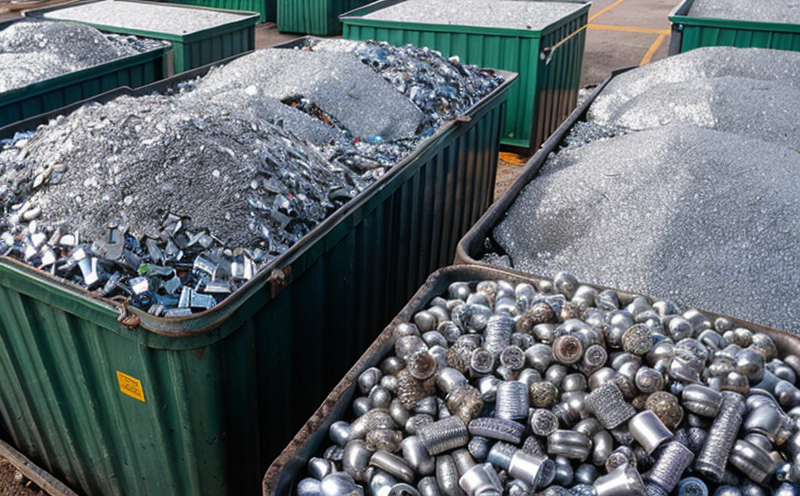ISO 11108 Rare Earth Content in Recycled Metals
The ISO 11108 standard is specifically designed to address the determination of rare earth elements (REEs) in recycled metals. This service is crucial for ensuring that the recycling process does not compromise the integrity and purity of the final product, especially when REEs are a critical component.
Rare earth elements play a vital role in various industries including electronics, automotive manufacturing, renewable energy technologies, and more. Contamination from trace amounts of these elements can significantly impact the performance and efficiency of end products. Therefore, it is essential to accurately measure their presence in recycled materials before they are used in production.
The testing process involves several steps that ensure precision and reliability. The first step is sample preparation which includes cleaning and homogenizing the metal samples to remove any contaminants or impurities. Once prepared, these samples undergo a series of analytical techniques such as Inductively Coupled Plasma-Mass Spectrometry (ICP-MS) for quantification.
The standard specifies strict limits on acceptable levels of REEs based on intended use and application requirements. Compliance with ISO 11108 ensures that recycled metals meet these standards, thereby maintaining product quality and reliability across the supply chain.
Our laboratory adheres strictly to this international standard ensuring accurate results every time. Our team of experts uses state-of-the-art equipment to perform these tests, guaranteeing precision and consistency in our findings.
Industry Applications
The application of ISO 11108 extends beyond just the recycling industry; it also has significant implications for other sectors where recycled metals are used. For instance, in electronics manufacturing, ensuring that REEs do not exceed certain thresholds helps maintain product performance and reliability.
Similarly, within automotive manufacturing, compliance with these standards ensures that vehicles meet stringent emission regulations while still benefiting from the advanced technology enabled by rare earth elements.
In renewable energy sectors such as wind turbine production or photovoltaic cell fabrication, accurate measurement of REEs in recycled materials can enhance sustainability efforts and reduce environmental impact.
Quality and Reliability Assurance
- Consistency: Our methods provide consistently reliable results allowing for effective quality control throughout the recycling process.
- Precision: Using advanced analytical techniques ensures that our measurements are precise, meeting or exceeding international standards.
- Sustainability: By adhering to these tests, manufacturers can ensure sustainable use of resources and compliance with environmental regulations.
We maintain a strict quality assurance program that includes regular calibration checks on all instruments used during testing. This ensures that our results remain accurate over time.
Use Cases and Application Examples
A key use case for this service is in the production of high-strength steel alloys where trace amounts of REEs can enhance strength properties without compromising other metal characteristics.
In another example, during the creation of electric motors or batteries for electric vehicles, accurate measurement ensures that these components function optimally and safely. Another important application lies within the aerospace industry, ensuring that critical parts made from recycled metals meet exacting performance criteria.
Our expertise in this area allows us to provide detailed reports on REE content which can be used by manufacturers as part of their ongoing quality assurance programs.





